2021 RSA Europe Winter College Speakers and Tutors
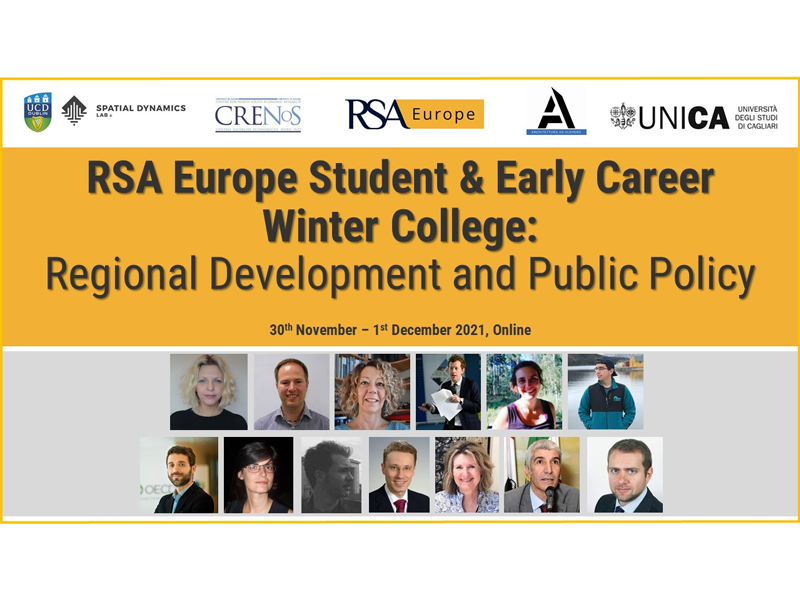
 |
Simona Iammarino (London School of Economics, UK)
Simona Iammarino is Professor of Economic Geography in the Department of Geography & Environment of the London School of Economics and Political Science (UK). She was Head of Department (01/01/2014 – 31/08/2017), and academic member of the LSE Council (2016-2020). Since 01/09/ 2016 she has been affiliate faculty member at the Gran Sasso Science Institute (GSSI), L’Aquila, Italy. She was elected Fellow of the Academy of Social Sciences (FAcSS) and Fellow of the Regional Studies Association (FeRSA) in 2017, and Fellow of the Royal Society for Arts, Manufactures and Commerce (FRSA) in 2018. Simona’s main research interests lie in the following areas: Multinational corporations, location and innovation strategies, and local economic development; Geography of innovation and technological change; Regional systems of innovation; Regional and local economic development and policy. She has published more than 60 articles in major peer-reviewed journals, two co-authored books, around 30 book chapters, and numerous working papers, policy reports and other publications. She is co-editor of the Journal of Economic Geography and was co-editor of Regional Studies (2008-2013). Simona has a long-term experience in externally funded international research projects, and in consultancy projects for various international organisations (e.g. EU Commission, OECD, United Nations) and government agencies.
|
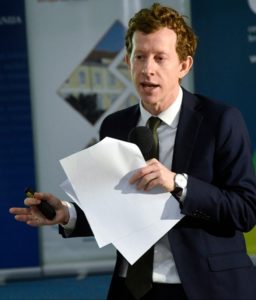 |
Austin Kilroy (World Bank, Croatia)
Austin Kilroy is an operational staff member at the World Bank. He has worked in Europe, Africa, and Asia, especially on projects related to subnational economic development. Amongst a total of 87 projects, he co-led the Bank’s initiative on city competitiveness and has led a multi-sector team of 100+ people to support the Government of Croatia in addressing lagging regions. His PhD (M.I.T., 2011) dissertation was on business transactions and interethnic trust. He is becoming increasingly interested in the dynamics of collective intelligence.
|
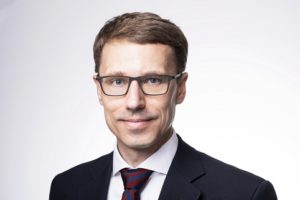 |
Karol Olejniczak (SWPS University of Social Sciences and Humanities, Poland)
Karol Olejniczak is an associate professor of public policy at SWPS University, Warsaw, Poland, and co-founder of the Polish policy research company Evaluation for Government Organizations (EGO s.c.). His research focuses on the use of evidence in public policy and application of behaviorally informed public interventions, especially in the context of cities. Karol carried out applied research and consultancy on policy design and evaluation in Poland, The Netherlands, Ireland and USA. He is the author of number of publications on policy design, evaluation and evidence informed policies. Karol was an Ostroms’ Policy Analysis Workshop fellow (2006), Kosciuszko Foundation fellow (2012), and recently he was Fulbright fellow at The George Washington University, Washington D.C.
|
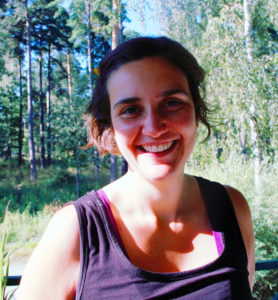 |
Rhiannon Pugh (CIRCLE, Lund University, Sweden)
I am a senior lecturer in Innovation Studies at CIRCLE, Lund University Sweden. My research interests include: regional economic development; economic geographies of weaker, post-industrial and peripheral regions; the roles of universities in regional development; gender perspectives within economic geography. I am handling editor of the early career section of the journal Regional Studies, Regional Science and co co-ordinator of the research network on gender and regional studies, funded by the Regional Studies Association.
|
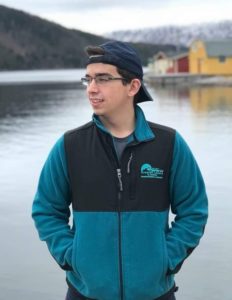 |
Brady Reid (University of Guelph, Canada)
Brady is working towards a Ph.D. in Rural Studies at the University of Guelph in Ontario, Canada. His research interests intersect environmental stewardship, rural community development, and Indigenous self-determination in policy and development decision-making processes. As a settler (non-Indigenous) scholar with English/Mi’kmaw ancestry, Brady explores the roles and responsibilities of researchers engaging in community-based participatory research including self-reflection and critical thinking throughout the research process.
|
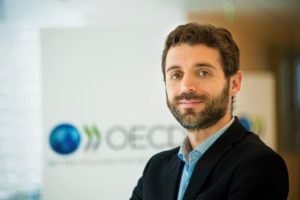 |
Paolo Veneri (OECD, France)
Paolo Veneri is the Deputy Head of the Economic Analysis, Data and Statistics Division at the OECD Centre for Entrepreneurship, SMEs, Regions and Cities. His work focuses on urban and regional development, including understanding and measuring urbanisation, well-being and spatial inequalities. He leads the statistical work for cities and regions at the OECD and the OECD Geospatial Lab. He led several OECD flagship publications including “Cities in the World. A New perspective on urbanisation” (2020), “Regions and Cities at a Glance” editions, “Divided Cities” (2018), “The Geography of Firm Dynamics” (2017), “Making cities work for all” (2016), “How’s Life in your Region?” (2014) and “Rural-urban partnerships: an integrated approach to economic development” (2013). He holds a PhD in Economics and he has published numerous papers in academic journals within the field of urban economics and regional studies. He teaches Urban and Regional Economics at the Paris Dauphine University.
|
 |
Sarah Ayres (University of Bristol, UK)
Sarah Ayres is a ‘Reader in Public Policy and Governance’ at the University of Bristol, UK. Her central research interest is the governance of place, space and territory. This core provides the basis for two main strands of work. First, her research is concerned with devolution and decentralisation in both a UK and an international context, with a particular emphasis on analysing inter-governmental relations between central government and local actors. Second, it has explored the role of partnership working and network management in the governance of territory. Sarah is a political scientist with expertise in public administration and theories of policy making. Her research is concerned with territorial and collaborative governance – how actors from state, market and civil society coalesce and work with one another in specific localities.
|
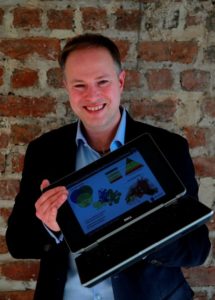 |
Dieter F. Kogler (Spatial Dynamics Lab, University College Dublin, Ireland)
Dieter F. Kogler is the co-founder and academic director of the UCD Spatial Dynamics Lab. He is an Associate Prof. in Economic Geography at the School of Architecture, Planning and Environmental Policy at University College Dublin. His research focus is on the geography of innovation and evolutionary economic geography, with particular emphasis on knowledge production and diffusion, and processes related to technological change, innovation, and economic growth. Dr. Kogler is an ERC Starter Grant Holder with the following project title: Technology Evolution in Regional Economies (TechEvo). This is a 5-year, €1.5m research project with the objective to produce a series of economic indicators, models and tools which will enable firms and policy makers, across Europe, to make more informed and better location-based investment decisions to boost innovation and drive regional prosperity. His career path combines professional, education and research experience acquired in Europe, the United States, and Canada within a variety of areas pertaining to the spatial analysis of socio-economic phenomena. He is an Editor of Regional Studies and an Editorial Board member of the Cambridge Journal of Regions, Economy and Society, both of which are highly regarded top-tier peer-reviewed journals concerned with research on the spatial dimensions of contemporary socio-economic processes. Further, Dr. Kogler is also an editor of the Economic Geography book series published by Springer. Since 2014 he is a Board Member (Conference and Events Coordinator) of the Regional Studies Association (RSA), which serves as a global forum for city and regional research, development and policy, as well as an Associate Editor for the RSA’s interdisciplinary open access journal, Regional Studies, Regional Science. In 2016, he spent a period as a Visiting Professor at the Centre for North South Economic Research (CRENoS) at the University of Cagliari and University of Sassari in Sardinia, Italy.
|
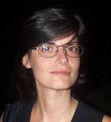 |
Emanuela Marrocu (CRENoS, Università di Cagliari, Sardinia, Italy)
Emanuela Marrocu is Full Professor of Econometrics at the Department of Economics and Business, University of Cagliari. She is Director of the Centre for North South Economic Research (CRENoS), University of Cagliari and University of Sassari. She attained her PhD in Economics from the University of Warwick (United Kingdom) in 2000. Her main research fields are: spatial econometrics and time series econometrics; productivity analysis at regional and firm level; determinants of knowledge diffusion and innovative performance; tourism economics.
|
 |
Alessandro Plaisant (Università di Sassari, Italy)
I’m an associate professor of the Department of Architecture, Design and Urban Planning, the University of Sassari, where I teach Urban Planning and Analysis of urban systems. I held a Ph.D. at the University of Cagliari, after spending eight month as a fellow at the School of Anthropology, Geography and Environmental Studies, the University of Melbourne, focusing my research on decision-making processes in public policymaking, strategic planning, policies and pluralism-oriented tools. I combine my research activities with higher education, international and institutional cooperation activities, as director of the II level International Master’s Program “Advanced Methods and Tools for Sustainable Planning”, developed in academic cooperation with Harbin Institute of Technology and as scientific coordinator of the activities planned for the funded national call “extraordinary Program of intervention for urban redevelopment and security of the metropolitan suburbs”, specifically in Sant’Avendrace district, the Municipality of Cagliari (Sardinia, Italy). Among my recent publications: Urban regeneration of peripheral areas: the critical role of the connective space in an italian city. (Aa.Vv) Urban Design Journal, 2018; Planning for S.M.A.R.T. development: a bottom up approach to lead knowledge-based tourism development in low density rural districts (Aa.Vv.), INPUT, 2016.
|
 |
Riccardo Crescenzi (London School of Economics, UK)
Prof Riccardo Crescenzi is (Full) Professor of Economic Geography at the London School of Economics where he is also affiliated with the Centre for Economic Performance (CEP) and the Spatial Economics Research Centre (SERC). Riccardo is the current holder of a European Research Council (ERC) Starting Grant, one of the most competitive research funding schemes in Europe. He is also an Associate at the Centre for International Development (CID) at the Harvard Kennedy School of Government, Harvard University. He has been a Visiting Scholar at the Harvard Kennedy School of Government’s Taubman Centre, at the University of California Los Angeles (UCLA) and a Jean Monnet Fellow at the European University Institute (Florence). Riccardo has provided academic advice to, amongst others, the European Investment Bank (EIB), the European Parliament, the European Commission (DG Regional Policy), the Inter-American Investment Bank (IADB), the Organisation for Economic Co-operation and Development (OECD) and various national and regional governments. Riccardo is the 2016 recipient of the Talented Young Italians Award for ‘Research and Innovation’ “in recognition of his outstanding research accomplishments” and the 2017 recipient of the Geoffrey J.D. Hewings Award from the North American Regional Science Council for “outstanding contribution to Regional Science Research”. His research is focused on Regional Economic Development and Growth, Innovation, Multinational Firms and the analysis and evaluation of European Union development policies. |
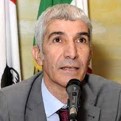 |
Stefano Usai (CRENoS, Università di Cagliari, Sardinia, Italy)
Stefano Usai is a full professor of Applied Economics at the University of Cagliari and a researcher of CRENoS (Center for North-South Economic Research). He is currently the Dean of the Faculty of Economics, Law and Social Sciences. He graduated in Political Science, majoring in Economics, at the University of Cagliari, then received the M.A. in Economics and the Mphil in Industrial and Business Studies at the University of Warwick and later the Ph.D. in Economics at the University of Naples.
|
 |
Frederick Guy (Birbeck University of London, UK)
Frederick Guy is a Senior Lecturer in the Department of Management at Birkbeck, University of London, and Professor, Department of Economic and Business, University of Cagliari. He received his BS in Political Economy of Natural Resources from the University of California at Berkeley; worked for twelve years as a manager, consultant, and company director in consumer cooperatives in grocery retailing, wholesaling, and housing; received his PhD in Economics from the University of Massachusetts, Amherst; and was a postdoctoral researcher for two years at the Centre for Business Research, Cambridge University, before joining Birkbeck. His current research deals with the contribution of monopoly and finance to regional economic disparities, and with the effects of social insurance on diversity of knowledge, skill formation and innovation. For previous research, see http://frederickguy.com/academic-papers/. His book The Global Environment of Business (OUP, 2009) has been required reading for courses on such subjects as economic geography, international business, the economics of innovation, international human resource management, and politics, at universities in several countries.
|
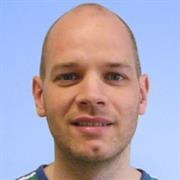 |
Enda Murphy (University College Dublin, Ireland)
Enda is Professor of Planning at the School of Architecture, Planning and Environmental Policy. Between 2015-2018, he held the position of Vice-Principal for Graduate Studies and Director of the Graduate School for the College of Social Sciences and Law (CoSSL). He holds a B.A Natural Science (2002), Postgraduate Diploma in Statistics (2004) and PhD (2005) in Transportation Planning all from Trinity College Dublin (TCD). Prior to being appointed at UCD he worked as an Environmental Protection Agency and Science Foundation Ireland Research Fellow at the Department of Mechanical Engineering, TCD where he undertook research in the area of environmental acoustics. His research interests are broad in scope but centre on the areas of urban transportation and spatial planning, environmental noise, neoliberalism/neoliberalisation, and the UN Sustainable Development Goals (SDGs). He has published widely in the international literature including, inter alia, in such journals as Environment International, Journal of Environmental Management, Transportation Research A and D, Planning Theory, Urban Studies, Town Planning Review, Geoforum, Cities and Applied Acoustics. He is author/co-author of more than 80 academic journal papers, book chapters, conference papers and reports and is co-author of two books. Enda has held visiting professor positions at the University of Economics, Ho Chi Minh City, University of Hartford, USA, Cape Peninsula University of Technology, Cape Town, and at CRENoS, University of Cagliari. He is a former Fulbright Scholar.
|
 |
Sally Hardy (Regional Studies Association, UK)
Sally Hardy began her career at the Economic and Social Research Council where she worked as a Scientific Officer in the Industry and Employment Committee dispensing funding to UK based social science academics. Sally moved to the Regional Studies Association where she has been CEO for just over 30 years. She has developed the organisation from a small, UK focused organisation into a global Association with an international footprint. Sally has become an advocate on publishing issues for the learned society sector speaking regularly at national conferences and events. She has advocated on different aspects of Open Access – for journals as well as for monographs and also around copy right reform and educational exceptions. She speaks on publishing practice and particularly on how to grow impact from publishing activity and on issues of learned society strategy. She currently sits on the Society Publishers Coalition Council and the Governance Committee of the Association for Learned and Professional Society Publishers and is the founder member of the Academy for Social Science CEOs Committee.
|
